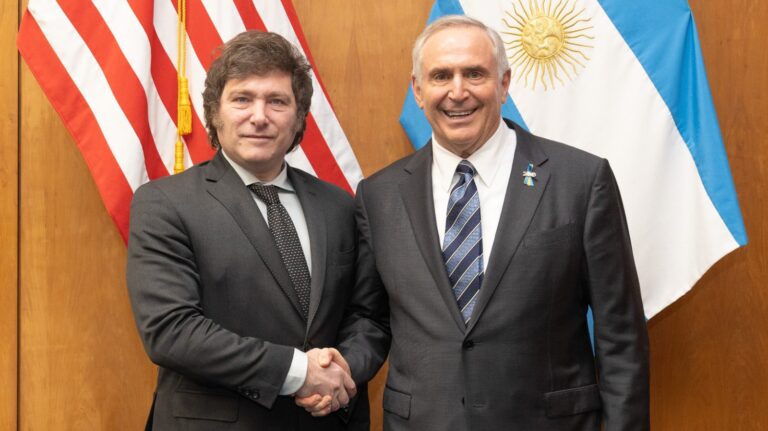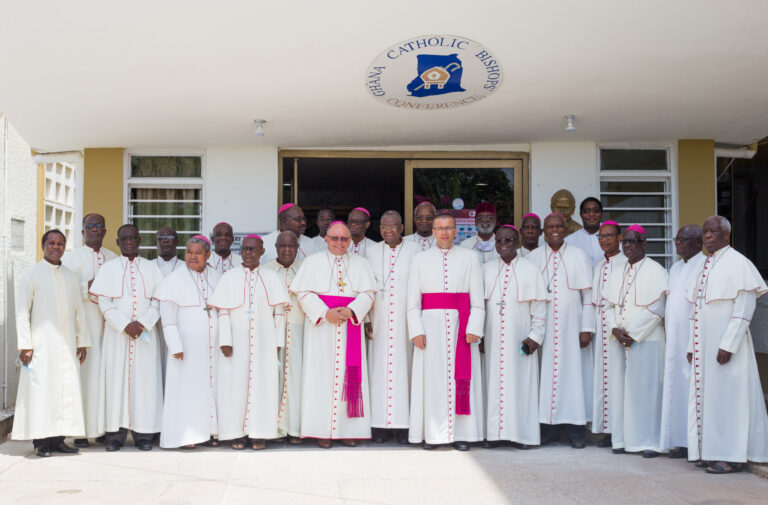[Editor’s note: In January of 1998, David Morrison made his first trip to Peru to investigate that country ’s coercive sterilization campaign. Despite promises made by USAID) and the Peruvian government that the abuses he found would be curbed, reports from Peru suggested otherwise. On 1 December 1999 PRI dispatched Mr. Morrison to Peru for a second time. Upon his return he filed the following report, which we believe indicates that the Tiahrt Amendment, the new US law which regulates the funding of population programs overseas, is being violated in Peru. ]
Very little has changed in Peru’s family planning program since PRI first documented human rights abuses there in 1998 (see: “Cutting the Poor,” PRI Review March / April 1998; www.pop.org/reports/rvU49801.html). Ignoring its own promises of improvements, which were affirmed before Congress by the US Agency for International Development (USAID), the Peruvian government has done little to reform its family planning program. Although so-called “ligation festivals” are not held as frequently as before, widespread abuses involving coercion, misinformation, threats, and bribes continue to occur.
Population Research Institute’s first study led to the passage of legislation prohibiting US funds from going to family planning programs overseas that violate the rights of women. The Tiahrt Amendment, named after its chief sponsor, Congressman Todd Tiahrt (R-KS), was signed into law on 22 October 1998. USAID continues to send money and contraceptives to the Peruvian government for family planning, as it did in 1997. So nothing has changed with respect to funding. But according to some on Capitol Hill, one thing has changed. Given the ongoing abuses, it is now illegal for USAID to be funding the Peruvian government.
The Tiahrt Amendment
The Tiahrt Amendment set standards for family planning programs in other countries, prohibiting US “population planning” funds from going to programs which violate this law. In order to qualify for US assistance, family planning programs in other nations cannot seek to fill quotas or targets for participation. Programs or governments accepting US family planning assistance cannot pressure or bribe women into accepting family planning methods they do not want. Governments running family planning programs cannot punish women who refuse to use family planning by restricting their access to other government programs or benefits for which they would otherwise be eligible. Overseas family planning programs must inform women completely, in their own native language, about their family planning alternatives, including so-called natural methods. They must inform them completely about possible side effects contraceptive drugs or devices might have. Finally, family planning programs in other countries that are testing a new or experimental drug or device, or testing its marketability in a given community or area, must inform participants that they are part of a study before they begin to use the method.
Past Abuses
With respect to the Peruvian government’s family planning program and its widespread abuses, past is prologue.
Beginning in 1995, after removing a long-standing legal barrier to sterilization for reasons other than medical necessity, the government of Peru began a country-wide sterilization campaign as a means of limiting family size. In village after village, “health promoters” would canvass house by house, returning time and again to pressure women to undergo surgery for sterilization. In almost no cases were the women adequately informed about risks or complications, or screened to determine if they were of adequate health to undergo abdominal surgery. In some cases, campaign staff neglected to gather basic information, such as the ages of women or whether they had begun to experience menopause or might be post-menopausal. The methods used to induce women to submit to sterilization were varied, but most included force or bribes. Campaign promoters made repeated visits to the homes of women who refused to be sterilized. The surgery was usually of a “hit and run” nature. A team would arrive, operate as quickly as possible, then depart. Surgeons were rarely on hand for post-operative care. The lack of medical attention, combined with unsanitary operating conditions, resulted in complications and the deaths of many poor women throughout Peru. Controversy erupted when several Peruvian newspapers reported these tragedies. This attracted international attention, leading PRI and the U.S. Congress to launch investigations.
Broken Promises
On 25 February 1998, at the conclusion of the investigations, a hearing was held before the House International Relations Committee Subcommittee on International Operations and Human Rights. At the hearing, Mark Schneider, then USAID’s Assistant Administrator for Latin America and the Caribbean, told Congress that the Peruvian government acknowledged that there were problems in the sterilization campaigns and had promised to make changes. Specifically, Schneider said that the Peruvian government had promised:
-
to discontinue their tubal ligation and vasectomy campaigns;
-
to make clear to health workers that there are no targets for surgical contraception or any other method of contraception;
-
to implement a comprehensive monitoring program to ensure compliance with family planning norms and informed consent procedures;
-
to welcome Ombudsman Office investigations of complaints received, and to respond to any additional complaints from the public;
-
to implement a 72-hour “waiting period” for people who choose tubal ligation or vasectomy, which would occur between the second counseling session and surgery; and,
-
to require health facilities to be certified as appropriate for performing surgical contraception to ensure that no operations would be done makeshift or in substandard facilities.
Schneider also declared at the hearing that USAID-funded family planning programs had to follow the following six guidelines: 1) They must allow people to choose from a range of contraceptive methods. 2) Families in a program must receive adequate information on all methods available. 3) Health personnel must be appropriately trained. 4) Health personnel must treat clients with respect. 5) Clients must have ongoing access to necessary services. 6) These health services should cover all other aspects of reproductive health.
Congress also saw the need to set explicit conditions for family planning programs which USAID funds. During the I998 congressional session the Tiahrt Amendment was drafted. It passed the House and the Senate, and then was signed into law.
Current Abuses
PRI’s investigation team included this writer, who had investigated previous
abuses in 1998, and Pat McEwen, Executive Director of Life Coalition International
(LCI). LCI is a US non-governmental organization (NGO) which also tracks human rights abuses in population control programs.
We interviewed abused women and medical staff of family planning programs of the Departments [provinces) of Huanaco and Ayacucho. Testimonies were recorded on audio and videotape. In each and every case we investigated, without exception, we found violations of US law as it is written to govern US contributions to family planning programs in foreign countries.
In the areas we visited we found that the government of Peru had broken most of the promises made in the wake of the sterilization campaign scandal, promises affirmed by USAID before Congress. The government of Peru also has forgotten USAID’s maxims for proper conduct as reported by Schneider during that hearing. In truth, we found abuses that were so pervasive and entrenched that the US government, under the Tiahrt Amendment, would seem to have no alternative but to cut off USAID funds to the Peruvian government.
We found widespread violations of informed consent provisions. Women are being routinely prescribed contraceptive drugs and devices without adequate discussion of side-effects or warnings. We found instances of coercion; namely, women who are being forced to use drugs or devices against their will. The abuses we found were basic. Instead of treating clients with respect, Peruvian medical officials routinely treat clients with hostility and contempt.
Lack of Informed Consent
Significantly, we found a number of women who had been sterilized during caesarean deliveries without their prior knowledge or consent. Our findings were confirmed by the Peruvian Governments Public Defender [Defensaria del Pueblo — a national ombudsman, or public representative appointed by the government}, who reported that two of its most recently documented cases (from September and December 1998) involved uninformed sterilization during delivery.
This failure to respect clients, and to seek their voluntary and informed consent to various birth control procedures has other manifestations. The women we interviewed in the Ayacucho region routinely reported being shouted at, called names, told how “stupid” they were and subjected to other harsh forms of verbal abuse if they objected to any method that the family planning officials wanted to force on them. Women said they were compared to “cats” and “dogs,” called “animals” and “beasts,” told repeatedly how “ignorant” they were for having, or wanting to have, their desired number of children; or for resisting forced contraception. These women were being denied the right to be treated with dignity and respect. The informed consent provisions of the Tiahrt Amendment cannot be met where clients are treated with pervasive disrespect.
We believe that such behavior is a form of racism directed against poor Peruvians of Indian descent. Peru is a race and class conscious country. There is a conspicuous lack of family planning propaganda in regions of the country where wealthier, lighter-skinned people live — parts of Lima for example. There is a plethora of family planning propaganda in poorer regions where darker-skinned women reside. Poor women of Indian extraction had earlier been the objects of the notorious sterilization campaigns. Now they are the objects of oppressive propaganda campaigns.
The Money Trail
According to USAID, the US government funds family planning programs run by the Peruvian government, and so-called non-governmental organizations (NGOs) working in collaboration with the same government, in the amount of US $36 million. According to El Peruano, which serves as the equivalent of the Federal Register for Peru, the Peruvian government approved donations from USAID to its family planning NGO, AB PRISMA totaling roughly US $5.3 million, or about 32,000 pounds of contraceptive drugs and devices for the year 2000.1
AB PRISMA calls itself an NGO, but resolutions of the Peruvian government approving donations to it are grouped under the title: “Donations Accepted That Will Be Destined For The Family Planning Program of the Ministry of Health.” When describing its family planning support in Peru, USAID describes PRISMA’s role as follows: “In the interest of building a sustainable contraceptive distribution system in Peru, USAID supports the Peruvian non-governmental organization A.B. PRISMA for work in forecasting, acquiring, and distributing contraceptives to service delivery points in both the public and NGO sectors. This initiative seeks to foster a heightened public/private partnership between the MOH and
PRISMA.”2
Packages of contraceptives used in coercive programs, which we photographed, clearly indicate that they are made by a US manufacturer. Moreover, USAID itself claims that it has ensured that in Peru “contraceptives are widely available in public sector and NGO facilities .… ”3
Case Violations
The following cases are based on interviews with women and medical staff in the Departments of Ayacucho and Huanaco. Testimonies have been recorded on tape. The names of some of the victims interviewed have been changed for their protection. These cases represent what we believe are violations of the Tiahrt Amendment.
Beatriz Quechaes, 34 (pictured on the front page of this issue)
Beatriz’s tragedy began several years ago when, at a health “fair,” she accepted an IUD in exchange for a promise of support for her then-infant son. Once the IUD was inserted, she felt side effects almost immediately. She says she suffered cramps and bleeding from the very first day. Her medical history was not taken before the procedure. Much of the information she received was in Spanish. As a native Quechua speaker, Spanish is her second language.
Beatriz endured the IUD for a time. Finally, near the point of collapse from persistent bleeding, Heatriz demanded that the IUD be removed. She was told, in Quechua this time, that because the IUD did not work for her she would have to start Depo-Provera immediately. Once again, no examination was conducted, no medical history taken. No one bothered to explain to her what Depo-Provera is, how it works, what its side-effects are, or why it was important for her to return on a regular basis for injections.
Beatriz arrived almost two months late for her next shot of Depo-Provera. Again, no medical exam was conducted, no history was taken. She was pregnant at this time. A series of cursory medical questions and an examination would have indicated her pregnancy. She was given her next shot, and suffered a miscarriage a few days later.
The medical staff at the hospital blamed her for the loss of her child, since she had missed the shot date. She was told she was “too stupid” for Depo-Provera. She was taken off that and put on the pill. She did not want to use the pill but was told if she refused she would be sterilized. At present, she takes “family planning” pills which are made in the USA.
There are layers of abuse in this case, all violations of Tiahrt. First, Beatriz was bribed into accepting the IUD. Second, she was not given an option besides Depo-Provera. Third, no medical histories were taken, no side effects explained, and her informed consent was not given. Fourth, Beatriz was pressured into using contraceptive pills on pain of sterilization.
Inocencia Quechaes Ayupari, 19.
Inoceneia is Beatriz’ sister and is currently pregnant by her husband who has had to leave the area for a job. She is currently not using any family planning method, although she was approached by hospital staff and told she that she has to accept a family planning method. She was told there was a possibility that her baby may have to be delivered by caesarian. although none of her pre-natal examinations indicated this. She plans to resist a caesarian, and to refuse family planning, although she is not sure she will be able to succeed. At the time of the interview, the delivery was about a month away. As of this writing, we have not yet been able to obtain additional information.
lnoceneia’s story of being pressured to choose a method of delivery is typical of what we heard of in other parts of Peru. The Tiahrt Amendment makes clear that there should be no pressure from anyone to “choose a method.”
Anatolia Gayilles De La Cruz, 46, mother of five.
Anatolia’s story is one of true perseverance. Pressured into accepting an IUD ten years ago, she has lived with constant pain and intermittent bleeding. Every two or three years, she traveled to the MOH medical post to ask for its removal. Only in 1999 did medical staff agree to take it out. In its place, medical staff told her, she would have to use Depo-Provera. Anatolia does not want to use Depo-Provera. She said she agreed to the Depo-Provera to ensure that the IUD would be removed. The Depo-Provera’s side effects include mood swings. and swollen breasts, She does not want to accept the next shot, which is due in February 2000. She does not want to start using contraceptive pills or be sterilized either, but fears that this will happen if she refuses to use Depo-Provera. The Tiahrt Amendment says that women cannot be threatened with the denial of a health care benefit (the removal of the IUD) to induce the acceptance of a family planning method.
Auristela Melger, 41, mother of eight
Auristela was pressured to accept sterilization in 1997 as part of the ligation
campaigns. She reported that she is required to sit through mandatory lectures about family planning methods as a condition of participating in the government sponsored
nutrition program for her toddler. In exchange for sitting through the three-hour lectures, Auristela said that she and about 40 other women get a month’s worth of cereal and dried milk. She said she was told by workers that it doesn’t matter that she has already been sterilized, but that any woman who wants the benefits has to sit through the training. The Tiahrt Amendment forbids requiring participation in a family planning program as a condition of receiving other benefits such as food support or health care.
Angelica Palomino Leiva, 30, mother of seven
Angelica confirmed that sterilization campaigns in Ayacucho continued through the Spring of 1999, although many women have been alerted by the media to the dangers and avoid them. Angelica was pressured to undergo sterilization during an earlier campaign. With the support of her husband, she managed to escape the procedure. She said she was deprived the chance of having her husband with her before making the decision. Immediately after the birth of her last child, however, she found herself caught in the middle of another sterilization campaign. Alone, without the presence of her husband, Angelica was sterilized by force. She had the impression the surgery was completed very quickly and was told later that the surgeon had only been able to rind and ligate one fallopian tube. Some women only have one, she was told.
More complications followed soon after. An extreme pain in her side made her think she had appendicitis. She was shocked to hear the surgeon explain that she had had an ectopic pregnancy, which could have killed her if she had not sought medical help. She suspects that the original surgeon was so concerned about sterilizing as many women as possible that he had not completed the surgery as he should. Angelica is still in post-operative pain and says that support has not been forthcoming. The Tiahrt Amendment forbids quotas and coercive practices typical of the sterilization campaigns. Women cannot be forced to decide their participation in family planning programs during times when they are in need of other medical care (as in childbirth). It is significant that she was not allowed a waiting period and was not allowed to have her husband with her when she made the decision.
Alicia Munoz Valez, 34, mother of four
Alicia was leaning toward accepting sterilization, because of an unexpected pregnancy some years after the birth of her last child. However, she and her husband were undecided. What clinched their decision was news that her pregnancy, due to the position of the baby in the womb, would require a caesarean delivery. The lower-middle class family could not have afforded the procedure; but they were told the caesarian, and post-op care and medication, would be free if she would agree to be sterilized at the end of the caesarian birth. They decided to do it.
The baby was born in mid-November in the local MOH hospital, and it became immediately apparent that, in the eyes of the couple, the MOH medical staff had not been forthcoming. Only some of the charges for the delivery had been dropped and the family was still left owing money. Most crucially, the promised post-operative drugs and support, with the exception of some pain killing pills available immediately after surgery, were not provided. At the time of the interview, three weeks later, Alicia was still battling infection due to the operation. The Tiahrt Amendment states that family planning programs cannot offer bribes or incentives, cash or commodities, in order to influence women to accept sterilization. The promised free caesarian was clearly meant to induce her acceptance of sterilization.
Elena Amporia Sales, 43, mother of five
Elena said that after losing a baby to a miscarriage some months ago, she approached the MOH hospital to see a doctor about a pain in her side. The doctor said she had a prolapsed uterus and would need a hysterectomy immediately. She had doubts about the diagnosis and the need for surgery, but when she questioned it the doctor became abusive. She said he repeatedly called her “ignorant,” and that she “didn’t know any better” and asked at one point “which of us is the doctor here?”
He told her she had a large growth on her fallopian tube or ovary and the need for the operation was great. Elena objected and finally left without agreeing to have the surgery. The pain in her side persisted. With the help of some relations she managed to see a doctor from the private sector. This doctor confirmed that she did not need a hysterectomy, did not have a growth on her ovary, and had an intact uterus that had not prolapsed. In retrospect, Elena is sure the MOH doctor pressured her to be sterilized without regard for her health. Under the Tiahrt Amendment, women may not be lied
to or have information withheld when being asked to make family planning decisions.
The information we gathered from other parts of the country, combined with the opinion of the Defensoria del Pueblo, convinced us to include this case as an example of a typical, ongoing abuse.
Maria Lopez, 26
Maria is a young medical worker/administrator at an MOH sub-post. Sub-posts are smaller medical posts with less equipment and supplies, but still provide rural people with access to basic medical care. Maria’s sub-post serves 45–50 women Depo-Provera in a community of roughly 4,500 people. Maria described how her medical post works off surveys of the surrounding area, These surveys determine how many women of child-bearing age live in the area. She said that the MOH in the region determines the
number of women who are to be part of the family planning program from these statistics. Maria said she thought that an administrator would be demoted or fired if their medical post consistently failed to meet its family planning targets.
Javier Chavez, 24
Javier is a young medical student in his last months of studies and training. He has worked as a family planning promoter, in the same region as Maria, as part of his training. He reports that he and other medical promoters have been routinely paid 20 Peruvian Soles (about US $6.00) and rewarded with gifts of popular sports clothes whenever they gained the most new clients in a month.
The testimonies of Maria and Javier reveal the mechanisms the MOH uses for its day-to-day family planning operations. Targets and quotas are forbidden under the Tiahrt Amendment.
Recommendations
Family planning abuses in Peru are widespread. The Peruvian Government has scarcely ameliorated its family planning program since it received widespread criticism in 1998, and despite its own promises to do so. The core of the program remains now, as it was then, chiefly concerned with preventing poor Peruvian women from having children. Health concerns are distinctly secondary. Exacerbated by a disregard for the law and by political corruption at many levels of Peruvian society, the program continues to ruin the lives of poor women across the country. Two years ago, a woman in Peru was never more likely a candidate for “family planning” than if she were brown-skinned, illiterate and had little money. This has not changed.
Based on these testimonies, we recommend the following:
-
The US Agency for International Development should cut off all funding for Peruvian NGOs involved in family planning programs unless and until it can be conclusively demonstrated that the government there is complying with the provisions of the Tiahrt Amendment. Peru’s family planning programs are so compromised that nothing short of a complete withdrawal of funds will be sufficient to change governmental attitudes over time.
-
The funds thus released should be redirected to genuine health care programs in Peru. These funds should not be given to the Peruvian government, which has lost the public confidence by its overweening push for population control at all costs. Women need access to basic health care, but this must come from non-family planning NGOs whom they can trust.
-
The Peruvian government should be encouraged by the US government, and by the international community as a whole, to end its abusive family planning program.










